Rieder’s Richter Scale: Sun-Horton Clash Brings Dryside Tremors
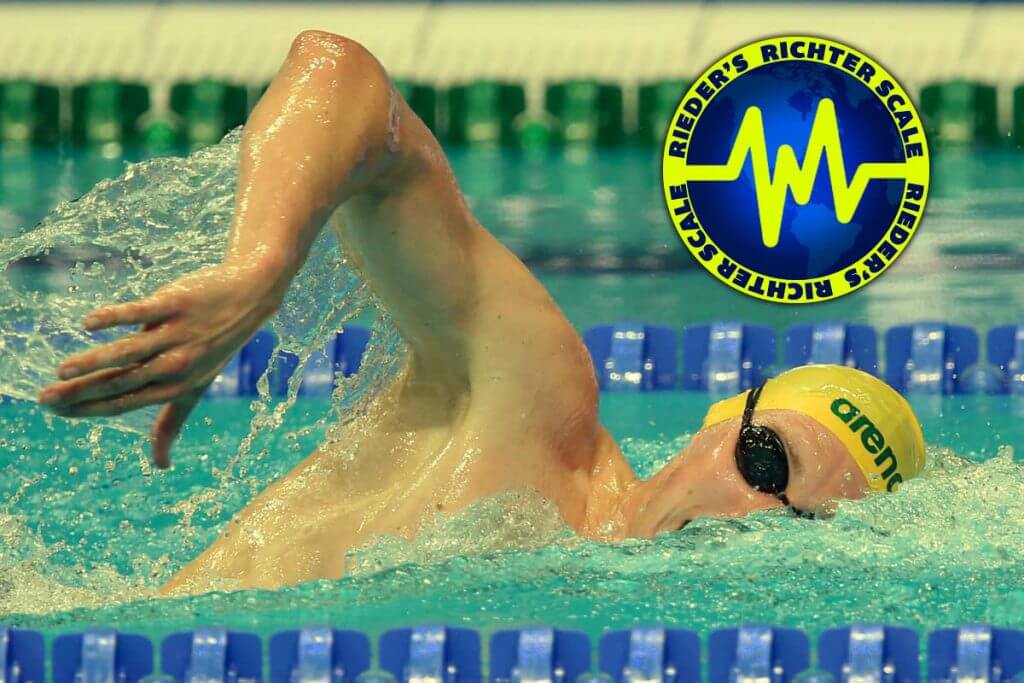
Editorial content for the 2019 World Championships coverage is sponsored by FORM Swim Goggles.
See full event coverage.
Follow FORM on Instagram at @FORMSwim #swimwithform

Each day during the FINA World Swimming Championships, Swimming World will present “Rieder’s Richter Scale,” an analysis of the impact of each swimming final on the sport’s wider landscape: “1” indicates just a minor tremor, while a “10” means a race brought massive upheaval.
The first two finals contested in Gwangju, the men’s 400 free and then the women’s, each brought a rare chance for swimmers to capture a fourth-straight world title in an event. One (Sun Yang) succeeded in a routine eight-lap affair—only to be followed by significant tension in the aftermath—while the other (Katie Ledecky) came up short in a startling turn of events on the final length.
Beginning with the men’s final, nothing from the printed results will come as too much of a surprise to those who have followed closely in recent years. Sun, as he so often does, stayed close to the pack for the opening portion of the race and then took over around halfway through, never looking back. He never pulled away, and his winning time (3:42.44) was among the slowest of his many gold-medal-winning performances.
Not that it mattered in the slightest. Nor did Mack Horton’s 3:43.17, his finest effort since beating Sun for Olympic gold three years ago in Rio. Few expected Horton to challenge Sun this time around, not after he only got to swim the event at the last-minute discretion of Australian national team coach Jacco Verhaeren.
The real drama, as it turned out, came later, when Horton refused to acknowledge Sun after the race or on the awards podium. Medalists traditionally parade around the arena to take photos, but Horton stood off to the side as Sun and bronze medalist Gabriele Detti made the rounds. Yes, the two have a history, but given the latest developments in the controversy, the animosity has reached new levels this time out.
Sun, meanwhile, celebrated as if nothing was amiss. As if he had no history with banned substances. As if he wasn’t awaiting a hearing that could decide his future after an incident with an anti-doping tester last year, one where he reportedly smashed a vile of blood with a hammer.
Sun told reporters after the race that “the last week has been frustrating for me personally.” He called Horton’s feelings about his doping record “unfortunate.”
Horton responded in succinct fashion: “I don’t think I need to say anything. I think his actions and how it has been handled speaks louder than anything.”
And as others notice what’s going on, some are picking sides—mostly Horton’s.
Tonight’s finals and medal ceremonya were so crazy who would have thought 🤪 great to see people taking a stance
— Chad Le Clos (@chadleclos) July 21, 2019
What’s the controversy over the guy in the middle again? Something about a hammer and a drug-testing-kit? https://t.co/SksyDXG43Q
— Connor Lee Jaeger (@conjaeg) July 21, 2019
Absolutely awesome to see @_mackhorton protesting clean sport by not getting up on the podium next to Sun Yang #cleansport pic.twitter.com/6WFJ8LhV8H
— David McKeon (@DavoMcKeon) July 21, 2019
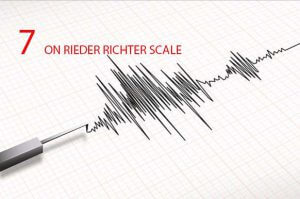
This story won’t die down anytime soon, not until Sun either stops swimming or perhaps is forced out. Don’t expect Horton, still just 23, to tone down his rhetoric about the controversial Chinese swimmer as the developments in the situation seem to become more and more difficult to believe.
So despite a relatively uneventful four minutes in the pool, the first final of the World Championships records a 7 on the Richter scale.
Good luck finding the right words to describe Ariarne Titmus running down Katie Ledecky in the 400 free. Unbelievable. Stunning. Surreal. Something you never thought you’d see.
Sure, one day, Ledecky, undoubtedly one of the sport’s all-time greats, was going to lose her spot on the mountaintop. But not yet, at 22 years old—right? And certainly not when she held a lead of six tenths with 50 meters to go, only to get out-split by 1.83 seconds on the last 50.
Swimmers know the feeling all too well: The helpless sensation of flailing the arms and giving every bit of energy left in the legs to get home at the end of the race, only to be totally out of gas. That’s never been Ledecky. Not until today.
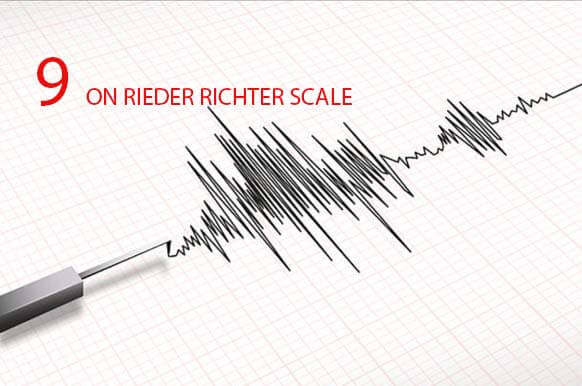
In the pool afterward and at the medal ceremony after that, Ledecky looked stunned and gassed. And rightfully so—she had never finished below the gold-medal spot in any international 400 free race. And her time, 3:59.97, was by far her slowest in any international 400 free final. Just last year, she swam a 3:58.50 to win gold at Pan Pacs, faster than Titmus’ winning time from Gwangju (3:58.76). Ledecky even swam faster last month, at 3:59.28.
She expected better. Everyone did. Ground-shattering stuff in the 400 free. This race records a 9.
Relay-wise, it would have taken a lot for either the American men or Australian women to get beaten in the 4×100 free. Beginning with the men’s event, the Americans simply did their jobs. Zach Apple provided the hammer with a 46.86 third split, following up on the potential he has shown the past two seasons and his recent 100 free gold medal at the World University Games.
On the anchor leg, Nathan Adrian came through once again with a 47.08 split to secure gold. That marked the fifth occasion Adrian has anchored the U.S. in this relay at the World Championships and the third gold medal earned as a result. The first came all the way back in 2009, and the only one he missed was 2015, when the Americans missed out on a spot in finals altogether.
Not bad for a guy who was diagnosed with testicular cancer seven months ago.
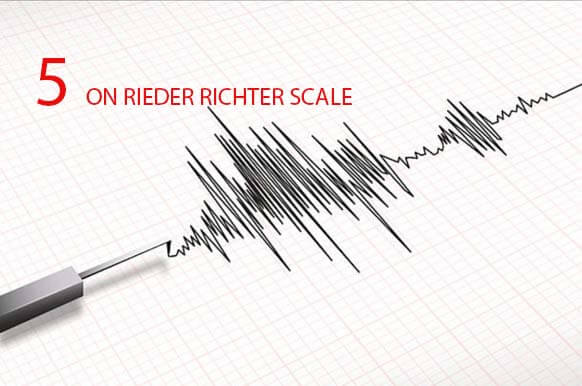
The American men finished in 3:09.06, the third-fastest relay in history behind the American and French teams from the historic 2008 Olympic final. Russia, meanwhile, captured silver in 3:09.97, becoming just the third country to break 3:10 since the polyurethane bodysuits were outlawed in 2009. Give credit to Russian anchor Evgeny Rylov, known mostly for his 2017 world title in the 200 back, for a gutty anchor leg (47.02) that put a real scare into the Americans.
Finally, Caeleb Dressel (47.63 on the leadoff leg) and Kyle Chalmers (47.06 anchor leg) provided solid splits but not the indicators we expected, the indicators that the world record (46.91) could be on alert when these two square off in the 100 free final later this week.
So the men’s relay earns a 5.
For the women, the Campbell sisters and Australia never had a danger of losing the gold medal, even if none of the principles swam their fastest-ever splits. All it cost them was a shot at a world record and a potential sub-3:30 performance, so they will have to take another shot at next year’s Tokyo Olympics.
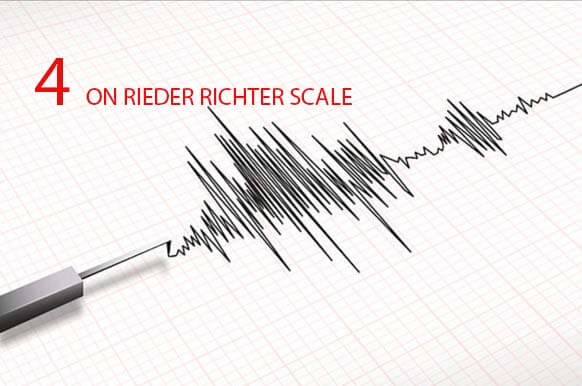
The only surprise here came with the American and Canadian teams getting as close as they did: 0.81 and 1.57 away, respectively. Simone Manuel (51.92) and Taylor Ruck (52.19) provided big splits, but we already knew they were in medal contention for the individual 100 free coming up Thursday and Friday.
But given the events of the 400 free individual final and given Ruck’s split, it seems fitting to call Ruck and Titmus the co-favorites for gold in the 200 free.
4 is the measured recording for the last final of night one.
As for the semi-finals, what more to say about the men’s 100 breast and Adam Peaty? “Project 56” is complete, ahead of schedule and under its allotted emotional budget. No Richter scale reading for the semis, but that’s a massive, historic feat, and it deserves to be celebrated as such.
So what did make a bump after semis? First, Maggie MacNeil in the women’s 100 fly. The 19-year-old Canadian was a surprising force in her first year at Michigan, finishing as high as second at the NCAA championships in the 100-yard fly, but her performance on day one in Gwangju far surpasses expectations.
While the third through eighth qualifiers for the final are bunched up within a tenth of each other, MacNeil is in Sarah Sjostrom’s stratosphere, her 56.52 improving her to No. 10 on the all-time list. Considered an outside medal chance 24 hours ago, she has to now be considered the obvious candidate for a silver medal.
Finally, we had two more developments in the men’s 100 breast, one a shocking twist in the race for medal spots behind Peaty. Ilya Shymanovich, considered the prime contender for silver, ended up 12th in a time more than a second short of his lifetime best.
Now, the battle for minor medals could go many different ways, with Yan Zibei, James Wilby, Yasuhiro Koseki and Andrew Wilson all under 59 seconds in semis—though of course not close to Peaty’s otherworldly level.
And then Wilson, whose 58.95 provides some positive news for the U.S. men’s 4×100 medley relay that will bookend the meet. A poor showing in 2018 left the Americans with few options for that relay spot, but a sub-59 individual swim combined with the expected fireworks on other legs, should provide some early assurance for the Americans.
.jpg)

- 2017 WORLD CHAMPIONSHIPS
- OFFICIAL MEET PAGE
- WATCH RACE VIDEOS
- LIVE STREAM
- DAY 1 SWIMMING RESULTS
- DAY 2 SWIMMING RESULTS
- DAY 3 SWIMMING RESULTS
- DAY 4 SWIMMING RESULTS
- DAY 5 SWIMMING REULTS
- DAY 6 SWIMMING RESULTS
- DAY 7 SWIMMING RESULTS
- DAY 8 SWIMMING RESULTS
- RESULTS FOR ALL AQUATIC SPORTS
- DAY 8 PRELIMS HEAT SHEETS
- DAY 8 FINALS START LISTS
- FORM Swim for Coaches
- FORM Swim Sponsorships
- FORM Swim Contests
- FORM Swim Media




All of the swimmers in Gwangju should be matching the guts and integrity shown by Mack Horton. If they don’t, they are condoning a cheat and an organisation (FINA) that does not have the sport’s or their best interests at heart. Sun said that China has been insulted by Horton’s actions actions. China deserves to be insulted by Horton.
Why let China even compete? They don’t play fair and in fact, they cheat.